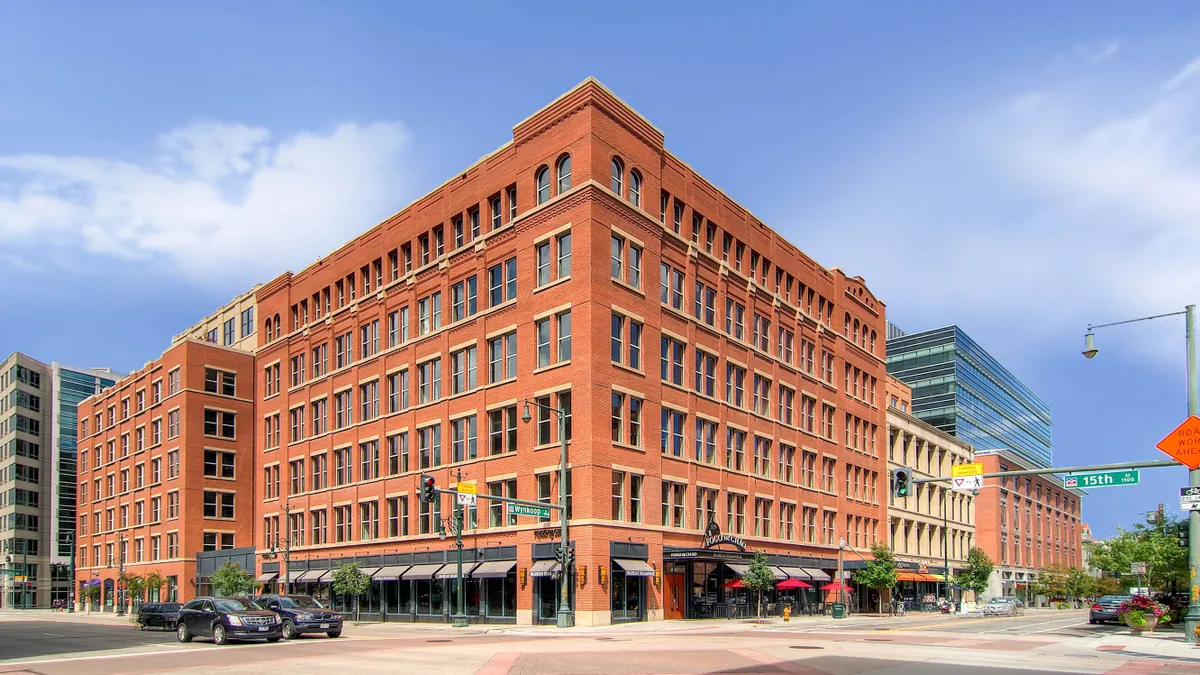Dive Brief:
- Amazon will open a new 98,000-square-foot office in downtown Denver, creating 400 new jobs in fields like software and hardware engineering, cloud computing and advertising.
- The expansion of its Denver Tech Hub will more than double the company’s tech workforce in the Denver area, which also includes a Boulder office that opened last fall. Between customer fulfillment and retail, the company has more than 3,500 jobs in Colorado.
- "We have a terrific workforce that continues to attract the ideas and businesses that thrive in a knowledge-based economy and we are a great place to do business," said Colorado Gov. Jared Polis in a statement. "Amazon’s current Colorado presence spans from distribution centers to robotics, corporate and operations. It’s wonderful to see their continued investment in our community."
Dive Insight:
Denver was one of the cities that had put in a bid for Amazon’s HQ2, which was eventually split between Northern Virginia and New York City. But with Amazon’s exit from New York, the company is instead investing more in its 17 "Tech Hubs" throughout the country, a mix of areas that have "a high concentration of universities, diverse and highly skilled workforces, and a dynamic quality of life," according to an Amazon blog post. Last month, Amazon said it would bring 800 new jobs to Austin, TX.
The growth is good news to Denver, which has pitched itself as a promising tech city because of the surrounding research labs, a trained workforce and its quality of life. A 2018 analysis by investment management company JLL found that Denver was adding high-skilled workers faster than any other American city, and the city has been high on rankings of tech cities. Having a major company like Amazon in both Denver and Boulder (which also hosts outposts for Google and Twitter, among others) could attract other industry stalwarts and startups.
The investments in various "tech hubs" — which have more than 20,000 employees worldwide — could signal that Amazon wants to create specialized offices in different cities, especially ones that offered incentives and data as part of the HQ2 search. That could help take some of the sting out of the search, which had mid-sized cities frustrated that they were passed over for major East Coast hubs.











